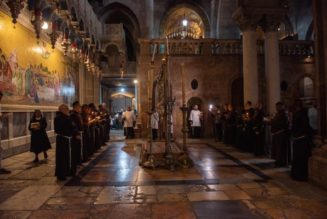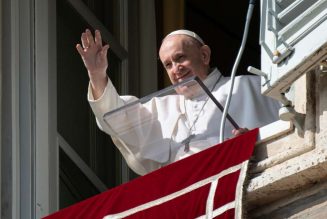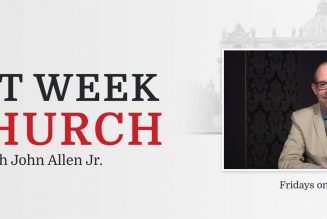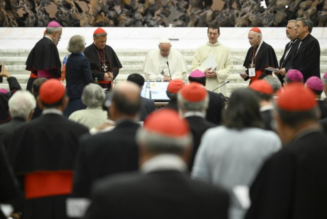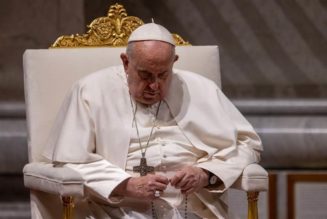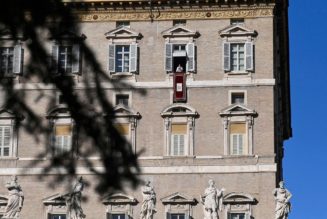
Looking back to 2020, the year that COVID-19 swept the world, he continued: “Last year we experienced yet another scourge that multiplied the numbers of the poor: the pandemic, which continues to affect millions of people and, even when it does not bring suffering and death, is nonetheless a portent of poverty.”
“The poor have increased disproportionately and, tragically, they will continue to do so in the coming months.”
The World Bank estimated in October that the pandemic could push as many as 115 million additional people into extreme poverty by 2021. It said that it expected global extreme poverty — defined as living on less than $1.90 a day — to rise in 2020 for the first time in more than 20 years.
The pope wrote: “Some countries are suffering extremely severe consequences from the pandemic, so that the most vulnerable of their people lack basic necessities. The long lines in front of soup kitchens are a tangible sign of this deterioration.”
“There is a clear need to find the most suitable means of combating the virus at the global level without promoting partisan interests.”
“It is especially urgent to offer concrete responses to those who are unemployed, whose numbers include many fathers, mothers, and young people.”
Pope Francis established the World Day of the Poor in his apostolic letter Misericordia et misera, issued in 2016 at the end of the Church’s Jubilee Year of Mercy.
The idea came about, he explained, during the Jubilee for Socially Excluded People.
“At the conclusion of the Jubilee of Mercy, I wanted to offer the Church a World Day of the Poor, so that throughout the world Christian communities can become an ever greater sign of Christ’s charity for the least and those most in need,” the pope wrote in his first World Day of the Poor message in 2017.
The Day is celebrated each year on the 33rd Sunday of Ordinary Time, a week before the Feast of Christ the King. This year, it will fall on Nov. 14.
Coronavirus restrictions forced the Vatican to scale down its commemoration of the World Day of the Poor in 2020. It was unable to host a “field hospital” for the poor in St. Peter’s Square as it had in previous years. But it distributed 5,000 parcels to Rome’s poor and gave 350,000 masks to schools.
(Story continues below)
Pope Francis followed his custom of marking the day by celebrating a Mass in St. Peter’s Basilica.
Presenting the papal message at a Vatican press conference on June 14, Archbishop Rino Fisichella noted that the pope highlighted the example of St. Damien of Molokai.
The Belgian priest, canonized in 2009, ministered to leprosy sufferers in Hawaii.
“Pope Francis calls to mind the witness of this saint in confirmation of so many men and women, including hundreds of priests, who in this COVID-19 drama have been willing to share totally in the suffering of millions of infected people,” the president of the Pontifical Council for the Promotion of the New Evangelization said.
In the message, signed on June 13, the memorial of St. Anthony of Padua, the pope argued that nowadays people in prosperous countries “are less willing than in the past to confront poverty.”
“The state of relative affluence to which we have become accustomed makes it more difficult to accept sacrifices and deprivation. People are ready to do anything rather than to be deprived of the fruits of easy gain,” he argued.
Join Our Telegram Group : Salvation & Prosperity
